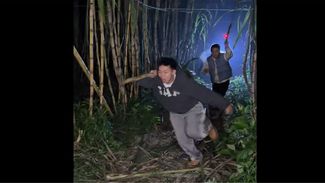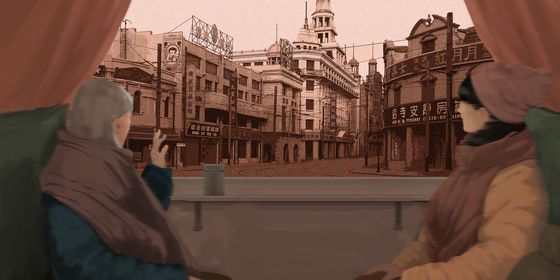Han Han’s directorial debut may not be perfect, but it offers some truths
“A film devoid of meaning but filled to the brim with pretensions of artistic greatness—or at least glimpses of artistic greatness he has readily absorbed, drained of power and then called his own,” writes film critic Clarence Tsui, in his final stab at Han Han’s latest directorial picture: The Continent. It’s a morose, existential comedy that has drawn intense criticism from both the domestic and international community, revolving around its seemingly milquetoast delivery. While the criticisms are not necessarily unjust, they fail at touching the core elements of the film— primarily, that life (and film) is full of absurdity, and how things are both perceived and meant to be, are often never one and the same.
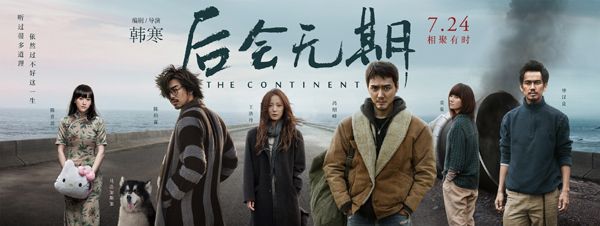
《后会无期》Hòu Huì Wú Qī, Director and Writer Han Han, Producer Fang Li
Han Han is often compared to Guo Jingming, the Hollywood playboy writer; both lack formal writing education but made fortunes off their writing. As a playboy of considerable fortune, Han’s career has made him an easy target for the established Chinese literati. It seems unfair to chain Han to Guo—two controversial writers, who share very little in common regarding style and are twinned only by their lack of formal education and age. Yes, it’s easy to hate on a controversial artist, and while both are red-stamped for public excoriation, there are certainly merits to Han’s directorial debut, which launched to the tune of 12 million USD, knocking Guo’s Tiny Times 3.0 off the blockbuster apex.
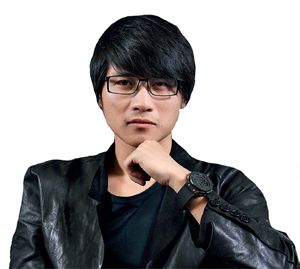
HAN HAN (韩寒)
Han Han is a Chinese essayist, writer, blogger, musician, producer, director, rally driver, and celebrity who came to prominence writing non-fiction essays. His blog has over 300 million hits. He remains a controversial figure, having sparred with members of China’s intellectual literati. Han is considered to be one of the most prominent voices of the post 80s generation.
The Continent might seem entirely out-of-place and unhinged, but it’s rife with existential commentary. The film generally follows three narrative arcs, each revolving around one of the male leads and their relationship with a woman as they travel across the country by car to deliver protagonist Jiang He (Bolin Chen), to his new position as a school teacher in western China. Much like Haruki Murakami’s meta-leveled story arcs, Han spends significant screen-time devoted to characters telling stories about other characters. It’s part comedy and part bittersweet adventure, evoking established Chinese society in a way that’s at least partially accessible to Westerners (although not necessarily “acceptable”).
Critics contend that the writing is “vulgar” and “anti-intellectual”, Han’s script channels some surprisingly familiar lessons from Western philosophers of the past, including Nietzsche and Camus. When their car is stolen, both protagonists end up in a ramshackle woodshed in the middle of the desert, reminiscent of Kobo Abe’s bleak black-and-white Woman in the Dunes. The following morning, Jiang delivers a Murakami-esque monologue, wrought with existential morality on the boiling of frogs. A frog being boiled doesn’t realize it at first, but animals always react to their environment, Jiang lectures. The past will pass, but being consistent in character is the only morality worth adhering to.
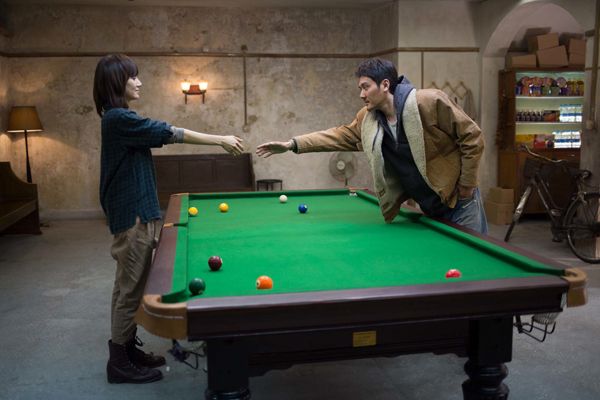
Haohan, played by William Feng, meets his pen pal, Liu Yingying, in her pool hall
Jiang He: Haohan, don’t let the past depress you. Let me show you an experiment.
Hào hàn, nǐ bùnéng yīnwèi yǐqián de yìxiē bùrúyì jiù chuí tóu sàng qì. Wǒ gěi nǐ zuò gè shíyàn ba.
浩汉,你不能因为以前的一些不如意就垂头丧气。我给你做个实验吧。
[Jiang He puts a frog into a pot of water, and turns on the gas. Haohan adds another frog.]
Haohan: Alright. Even if it fails, we’ll at least have breakfast. Let them keep each other company.
Yě hǎo. Wànyī shíyàn shībài le, wǒmen lián zǎofàn dōu yǒule. Ràng tāmen zuò gè bàn ba.
也好。万一实验失败了,我们连早饭都有了。让它们做个伴吧。
[Both men gaze at the frogs in the water while the gas hisses.]
The water is bubbling, and they are still not reacting.
Shuǐ kāishǐ màopào le. Kě tāmen hái méiyǒu rènhé fǎnyìng.
水开始冒泡了。可它们还没有任何反应。
[The frogs start to stir in the warming water.]
Jiang: Look, they are feeling something is wrong. Creatures always react to changes in the environment. Everything will be alright. The frog won’t be trapped—they’ll jump out. That’s what happens in reality.
Nǐ kàn, qīngwā kāishǐ chájué le. Dòngwù dōu huì yīzhào huánjìng zuò chū gǎibiàn de. Yíqiè dōu huì zìrán guòqù. Qīngwā búhuì bǎ zìjǐ kùn zhù, tā huì tiào chūlái. Zhè jiùshì xiànshí.
你看,青蛙开始察觉了。动物都会依照环境做出改变的。一切都会自然过去。青蛙不会把自己困住,它会跳出来。这就是现实。
[Just when the frogs are about to hop out of the water, Haohan suddenly covers the pot with a lid and presses hard on it.]
Haohan: Now this is reality!
Zhè cáishì xiànshí!
这才是现实!
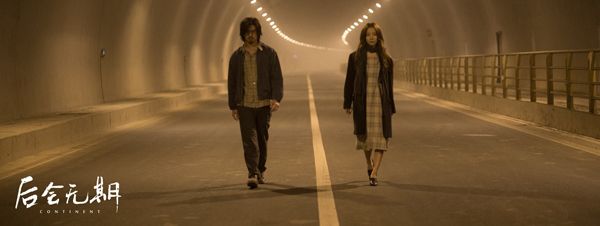
Zhang He, played by Bolin Chen, and his fake prostitute escape a faux police plot through a dark tunnel
The scope of The Continent is grand, not necessarily in its vision, but in its portrayal of Chinese society— protagonists Jiang He, Haohan (William Feng), and their assorted cohorts that join them throughout the film, seem to be less characters than caricatures. The Continent is then also about modern China’s strange class divide. Jiang He is a mumbling, unkempt youth with long hair, immediately reminiscent of China’s excoriated 80’s generation, lost in a reality of his own—a place where prostitutes are waiting for rescue and wayfaring strangers have the best intentions. Haohan is the portrait of a down-and-out working-class man—ex-taxi driver, ex-delivery boy, ex-paperboy and ex-kindergarten security guard, he’s grounded in the optimism of friendship, yet jaded by the “reality” of modern society.
While The Continent expounds on the divide between people, it also touches on the metaphysics of “reality”. Relationships, people, and situations are not what they seem, a theme that runs throughout the movie, including the bleak, yet sometimes light-hearted humor that pervades the entire film. Particularly revolving around the theme of relationships, The Continent is harsh in its portrayal of what Camus called the Absurd—the tie that binds objective reality and human perception of reality. When Haohan confronts Liu Yingying, the pen pal he’d been waiting 19 years to meet, he discovers that she served as a decoy to get him to write to his father, who he’d assumed was dead. Instead of actually returning his advances, this baggy-pants-sporting (but ultimately still-attractive) woman is actually in no way interested in him. Since he’d been duped into believing her story, would his perception of reality have been any less valid had he not known? Perhaps not, Han says.
Haohan: I’m embarrassed by those letters. I might have gone too far in expressing my feelings. I lost my mind. I was too explicit, you know.
Bù hǎoyìsi a. Zhīqián tōngxìn de nèiróng, chǐdù bǎwò de búshì hěnhǎo. Wǒ zìjǐ fàng de tài kāi le. Nǐ míngbái de.
不好意思啊。之前通信的内容,尺度把握得不是很好。我自己放得太开了。你明白的。
Liu Yingying: I don’t mind. You tend to be impudent when you have feelings for someone, but to love means to have some restraint. You know how to contact me. Bye.
Méi guānxi, xǐhuan jiù huì fàngsì. Dàn ài jiù shì kèzhì. Nǐ yǒu wǒ yíqiè de liánluò fāngshì, zǒu ba.
没关系,喜欢就会放肆。但爱就是克制。你有我一切的联络方式,走吧。
Ultimately, what The Continent comes down to is a broad dialogue on the metaphysics of class. Who gets to have the last word? Han asks—a recurring theme throughout his controversial career as an essayist, novelist (perhaps less as a rally driver), and now director. For someone who’s suffered so many attacks on his character, The Continent while not a perfect film by any measure, delivers the lesson with poignancy, and to the critics— after all, who gets the last laugh?


